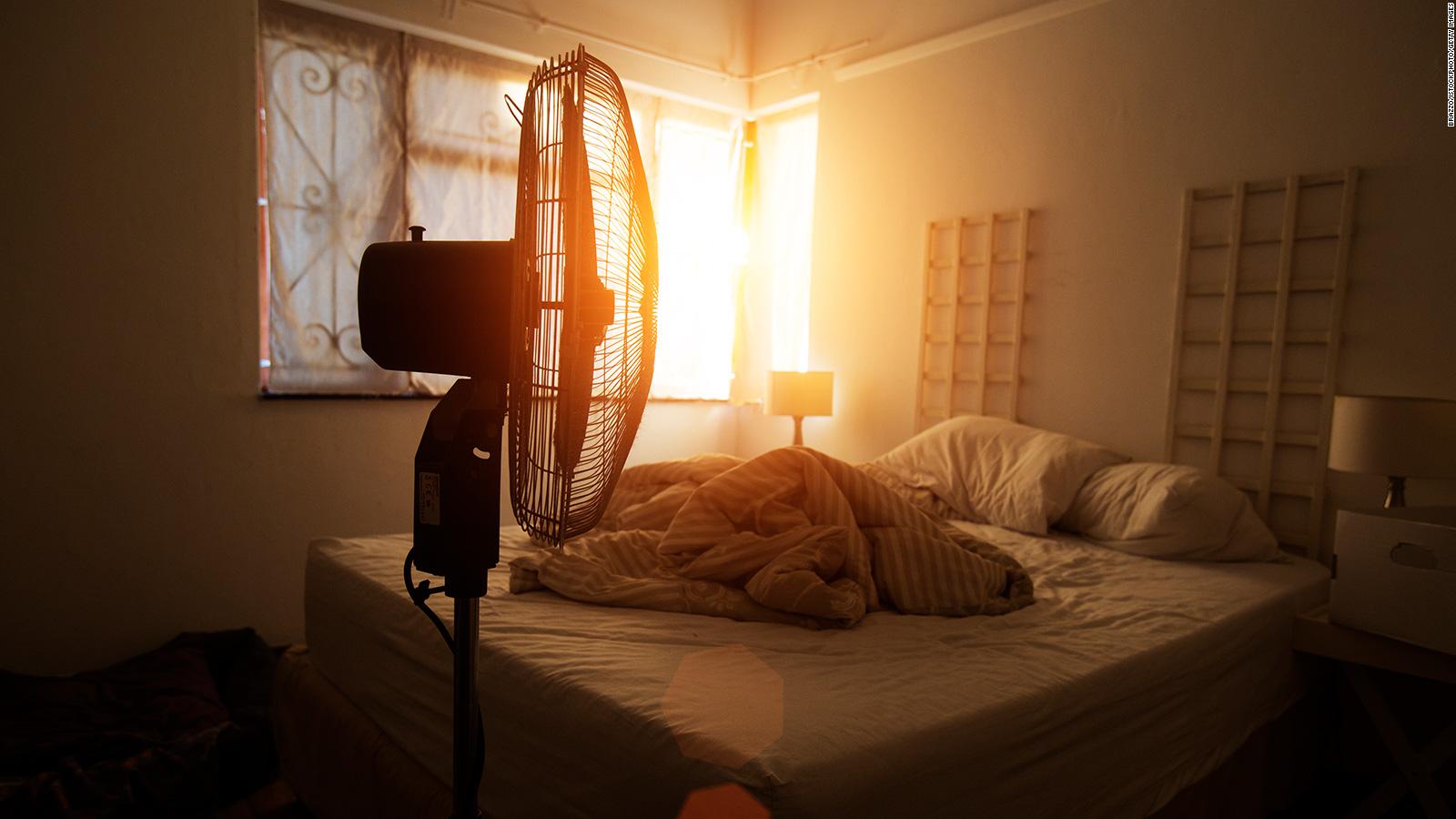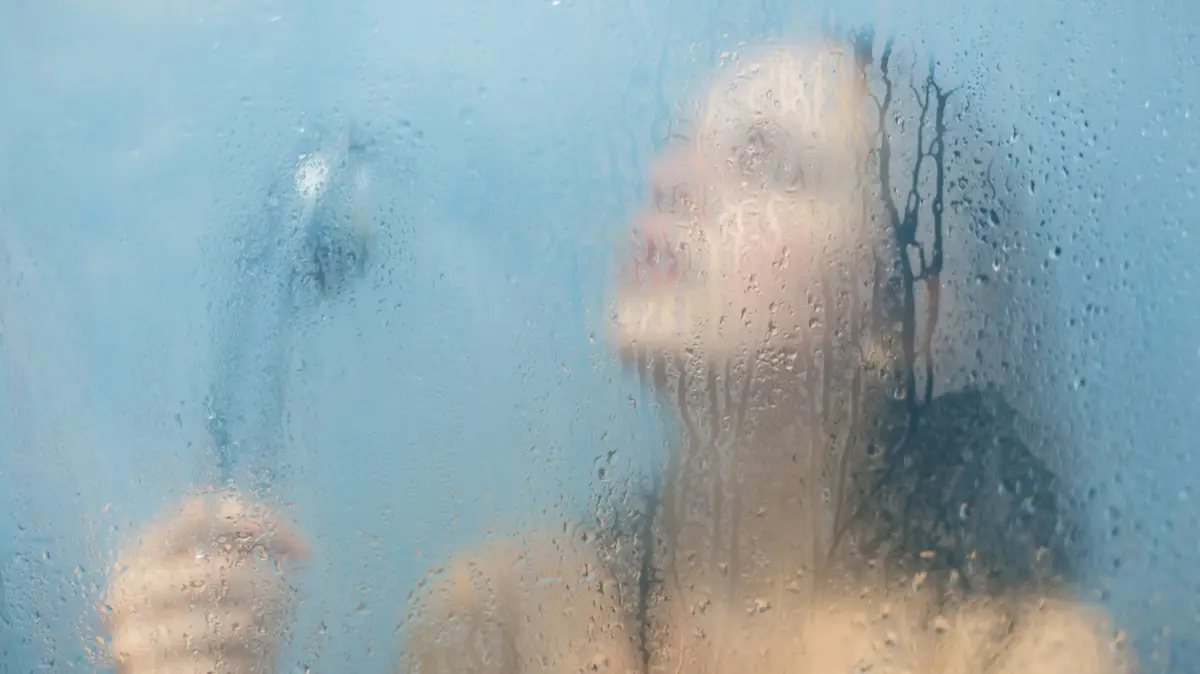If you suffer from insomnia, these tips could help you a lot 2:46
(CNN) --
Do you wake up drenched in sweat, if you can sleep at all?
This is the sad reality for millions of people around the world facing severe and unbearable heat waves.
In California, temperatures above 110°F (43.3°C) are breaking records and pushing the state's power grid to its limits.
In the UK and Europe, recurring heatwaves are roasting residents and tourists alike, sparking bushfires and fueling drought, while Europe suffers from power shortages due to Russian restrictions on electricity supplies. natural gas to the region.
Many houses and hotels in the region do not have air conditioning, which means that people are not used to extreme heat and do not know how to cope with it.
Historically, central air conditioning was not necessary in much of the UK and the rest of Europe, as high temperatures were not the norm.
This may be about to change permanently, according to recent analysis that predicts severe temperatures in the region will become the norm by 2035.
It's not just about the unbearable sun: nighttime temperatures aren't dropping as they should either.
A study in February found that the kind of cool, wet nights needed to help control wildfires are disappearing: The years between 1979 and 2003 saw a 36% average annual increase in "flammable" nights.
People will lose up to 58 hours of sleep a year by 2099. We explain why
The dream is what suffers the most
"Sleep is a vital function necessary for adaptive physical and mental well-being," according to a review published Thursday in the Journal of Sleep Research, which addresses the health impact of sleeping in warmer temperatures and gives tips for coping.
advertising
For the best quality of sleep, experts have long recommended sleeping in a cool room: 15.6 to 19.4°C is best.
What happens when you can't get that during a heat wave?
Studies have shown that higher nighttime temperatures increase wakefulness and reduce deep wave and rapid eye movement (REM), both of which are critical for the body to repair and cool itself at night.
Exposure to heat waves during pregnancy may be associated with adverse outcomes such as premature birth, according to a 2019 study. Older adults may have higher heart rates and more physiological stress when sleeping in warmer temperatures.
A 2008 Australian study even found that deaths due to mental and behavioral disorders increased during heat waves, especially for older adults.
Tips for sleeping in the heat
If we learn to better deal with sleep problems during heat waves, we could limit the negative impact on our health, according to a team of experts from the European Insomnia Network, authors of the article.
Here are some of the top tips from the Network's experts, along with tips from US sleep experts who weren't involved in the post.
1)
Stay hydrated.
Drinking plenty of water during the day can help your body better regulate temperature at night.
But don't drink an hour or two before bed, or you'll end up waking up at night to go to the bathroom, said Dr. Raj Dasgupta, a sleep specialist and associate professor of clinical medicine at Southern University's Keck School of Medicine. Of California.
Instead, "try sucking on ice cubes before bed."
Eating lighter meals throughout the day can also help, according to Dr. Phyllis Zee, chief of sleep medicine and professor of neurology at Northwestern University Chicago Feinberg School of Medicine.
How is extreme heat affecting your health and well-being?
This report tells you
2)
Choose loose, cotton clothing
, and avoid synthetics, which can trap heat.
3) If you are lucky enough to have a cooler period during the day,
open doors and windows
and turn on fans to air out the room, then close them when the temperature rises.
4) If there are no breaks from the heat,
close the blinds, draw the curtains,
and do your best "to keep the house and bedroom as cool and dark as possible both day and night," the review suggests.
5)
Avoid alcohol
at night, as it dehydrates the body and causes night sweats.
6) Set aside an hour or more before bed for you and your children to engage in calming activities, such as "reading a book, listening to a story, or listening to music. This may help you cool down and relax," the review adds.
7) Before bed,
take a warm or cool (but not cold) shower
or foot bath, which can help reduce heat stress and prepare for sleep.
How does this happen?
"Body temperature drops when you get out of the shower or bath, as the body adjusts to the cooler environment," explains Dasputa.
"This drop in temperature prepares the body for sleep because our body temperature has a natural circadian rhythm: the body is primed to cool down when you lie down and warm up when you wake up."
8) Try to keep your bedroom
below 25°C
if you can.
To do this, try using ceiling fans or electric floor or bedside fans, which use "up to 50 times less electricity" than air conditioning, the magazine notes.
"There are also fairly inexpensive ice fans that can be placed near the bed," Zee said in an email.
"If you can't keep the bedroom cool, temporarily sleeping on lower floors like the basement (if there is one) will be cooler."
How to stay cool without air conditioning
Advice aside, the health impact of people accustomed to temperate climates hasn't been well researched, said psychiatrist Dr. Bhanu Prakash Kolla, a specialist in sleep medicine at the Sleep Medicine Center of the Mayo Clinic, in Rochester, Minn.
Studying people who live in hot countries and have adapted to hot weather would also be helpful, Kolla said:
"There is no evidence that they have higher rates of insomnia or other sleep disturbances or that they actually sleep poorly. So it's quite likely that we can learn a lot about the adaptive measures used by these cultures that have lived in much warmer climates for many centuries.
Sleep quality Heat wave







